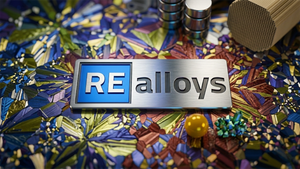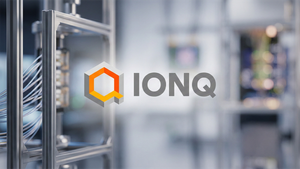--News Direct--
By Ted Stavetski, Benzinga
IN8bio Inc. (NASDAQ: INAB) is a clinical-stage biotechnology company tackling one of society’s most pressing issues: cancer. Specifically, the company is focused on using the immune system to eliminate residual tumors, and currently has two clinical programs focused on leukemia and on glioblastoma, the deadliest type of brain cancer. IN8bio is pioneering a new approach using the immune system to tackle the deficiencies that plague most current cancer treatments.
Alpha-beta T cell-based chimeric antigen receptor, or CAR-T therapies have shown remarkable results against some leukemias and myelomas. However, many of these CAR-T treatments have faced challenges against more difficult-to-treat leukemias, such as acute myeloid leukemia (AML) and solid tumor cancers. These cancers can be highly heterogenous, making them difficult to kill since they are often intertwined in healthy tissues, leading to unintentional toxicities and adverse events. In some cases, patients have even died. Fortunately, IN8bio may have found the solution to this problem.
What Is “Cancer Zero?”
IN8bio set out on a mission that it calls “Cancer Zero”, which co-founder and CEO William Ho describes as “the goal of pursuing the safe eradication of all tumor cells in patients fighting cancer.” In other words, the company aims to eliminate all cancer cells without destroying healthy cells. To achieve this, the company has developed advanced technologies using a specific subset of immune cells, or lymphocytes called gamma-delta T cells, in its DeltEx platform.
Gamma-delta T cells are white blood cells whose job in the body is to be a first-responder and to determine safe and not-safe. They kill invading or dangerous cells and can call in reinforcements by recruiting and activating other immune cells. It was IN8bio’s co-founder, Dr. Lawrence Lamb, a clinical immunologist on a cancer ward treating patients with aggressive leukemias in the 1990s, who made the first observation that gamma-delta T cells are linked to greater survival in cancer patients. He spent the next 25 years figuring out how to expand, genetically engineer and manufacture gamma-delta T cells at scale and into a cancer therapy. In 2016, IN8bio was launched to take these gamma-delta T cell technologies into the clinic and today, Dr. Lamb is IN8bio’s Chief Scientific Officer. He leads a team of scientists and researchers dedicated to achieving the company’s mission of Cancer Zero.
IN8bio’s DeltEx platform uses gamma-delta T cells that it believes are potentially safer and more effective at killing cancer cells than other therapies currently in development. The company has the capability to utilize autologous (from the patient), allogeneic (from a donor or “off-the-shelf”) and induced pluripotent stem cell (iPSC)-derived gamma-delta T cells. These cells can be expanded, activated and genetically engineered outside of the body to increase their numbers and to enhance their hunting and killing abilities. In one platform unique to IN8bio, its drug resistant immunotherapy (DRI) technology enhances gamma-delta T cells by genetically engineering them to be chemotherapy resistant.
Chemotherapies have been a mainstay of front-line cancer therapy since World War II. While effective at shrinking a tumor and prolonging survival, they also kill white blood cells. As a result, microscopic residual tumors that are resistant to therapy often remain and result in relapse because of the weakened immune system. IN8bio’s DRI approach allows the simultaneous combination of chemotherapy with an immune therapy that may create synergies that allow the DRI gamma-delta T cells to recognize and eliminate the residual tumor cells while leaving healthy tissues alone. By targeting compartments of residual tumor cells, IN8bio’s DRI approach may achieve deeper tumor responses that can prolong survival. The company has already protected the DRI technology behind this process with issued patents around the world.
IN8bio: Drugs In Clinical Development
IN8bio has three therapies that are in varying stages of clinical development:
INB-400: A phase 2 multi-center clinical trial for the treatment of newly diagnosed glioblastoma, or GBM (NCT05664243). This trial has recently initiated enrollment at leading brain tumor centers across the United States following clearance of a company-sponsored investigational new drug application, or IND, by the U.S. Food and Drug Administration, or FDA. This program received Orphan Drug Designation (ODD) from the FDA in the spring of 2023 for targeting a significant unmet medical need, which offers potential incentives such as 7-year market exclusivity.
INB-200: A phase 1 clinical trial at the University of Alabama at Birmingham using autologous, genetically modified DRI gamma-delta T cells for the treatment for newly diagnosed glioblastoma (UAB - NCT04165941). This program was one of only four central nervous system (CNS) cancer programs to have received an oral presentation at the 2023 American Society of Clinical Oncology (ASCO) Annual Meeting, the largest world-wide yearly gathering of cancer clinicians and researchers. At that time, the company released initial phase 1 data showing that 100% of treated patients have exceeded expected median progression-free survival. An additional clinical update is expected in November 2023 at the Society for Neuro-Oncology Annual Meeting (SNO), and long-term follow-up data is expected to be presented at medical meetings in the first half of 2024.
INB-100: A phase 1 trial for the treatment of patients with high-risk leukemias undergoing haploidentical stem cell transplantation, or HSCT (NCT03533816). The company presented a clinical update at the European Society for Blood and Marrow Transplantation (EBMT) annual meeting in April 2023 that demonstrated 100% of evaluable patients (n=7) treated with INB-100 remained alive, progression-free and in durable complete remission (CR) as of April 21, 2023. Patients included high-risk AML patients and a patient with acute lymphoblastic leukemia (ALL) who had failed four prior lines of therapy, including CAR-T. All evaluable patients remained alive as of the last assessment and one patient had survived for three years. IN8bio has completed primary enrollment of the phase 1 clinical trial, with updated results expected at the American Society of Hematology (ASH) Annual meeting in December 2023. Topline long term follow ups are expected in 2024.
To further its research, IN8bio recently opened a new 10,000-square-foot research & development (R&D) facility in Birmingham, Alabama. This state-of-the-art facility not only bolsters the company’s ability to advance its groundbreaking pipeline of gamma-delta T cell therapies, but also further taps into the advanced cancer research at the UAB, and other prominent institutes.
Additionally, the company holds a total of 19 granted U.S. and international patents with many more still pending approval. This will help IN8bio protect its innovative new therapies from competitors as they proceed through clinical trials towards future commercialization.
Cancer Immunotherapy Market
IN8bio is tackling a large market. Grand View Research estimates that the global cancer immunotherapy market was worth approximately $115 billion in 2022 and is expected to grow at a compound annual growth rate of 8.7% from 2023 to 2030.
Diving deeper, the American Cancer Society estimates that there will be 59,610 new cases of leukemia (and 23,710 deaths) in 2023, and the National Brain Tumor Society estimates that there were 13,400 new cases of glioblastoma in 2022.
Despite being a lesser-known disease, awareness of glioblastoma is growing quickly. This is mainly due to the unfortunate, high-profile deaths of the President’s son, Beau Biden, and former U.S. Senator John McCain.
One Step Closer Towards Cancer Zero
IN8bio’s portfolio of cell therapies has the potential to offer a better treatment option for patients suffering from difficult to treat solid and liquid tumors such as AML and glioblastoma. The company’s primary advantage is its patent-protected platform gamma-delta T cell technologies, which it believes may allow it to better target cancer cells, getting deeper responses without hurting the patient’s healthy cells.
The biotechnology company has had its foot on the gas pedal in recent years, boasting the following achievements:
Two programs in phase 1, and enrollment has been initiated in its corporate-sponsored phase 2 trial at multiple sites across the U.S.
A portfolio of preclinical programs in development including:
iPSC derived gamma-delta T cells platform. iPSCs represent a significant step toward next generation approaches of cellular manufacturing for true allogeneic and potentially ‘off-the-shelf’ cellular therapies.
INB-300, which focuses on addressing various solid and liquid tumors using a dedicated gamma-delta non-signaling CAR-T, or nsCAR, construct. These nsCAR constructs are designed specifically for the biology of gamma-delta T cells and allow IN8bio to potentially target tumor tissues while leaving healthy tissue alone. This could potentially create safer and more potent therapies.
19 granted patents for its technology.
A brand new state-of-the-art R&D facility.
$17 million in cash on hand, as of June 30, 2023, to help fund its operations and drug development.
While the company is currently unprofitable – posting a net loss of $7.7 million for the three months ended June 30, 2023 – this is largely expected for biotechnology companies in the clinical development stage as they work to develop new drugs. However, IN8bio’s approach to business appears to be quite different in the biotechnology industry. The company reports it has been able to advance its clinical and preclinical programs by being extremely efficient with the capital raised, searching for innovative ways to advance their preclinical and clinical programs. Whereas IN8bio has successfully advanced multiple programs into phase 1 and 2 clinical trials while only having spent $76.5 million through 2Q23, a number of competing cell therapy companies have spent far more while showing similar, or less progress.
Co-founder and CEO, William Ho has over 22 years of combined experience managing biotechnology companies, healthcare finance and investing, while co-founder and CSO, Lawrence Lamb has been in cellular therapy for three decades. They and the rest of the management team have the experience and know-how to effectively execute, manufacture, develop and advance the company’s growing portfolio of cancer therapies.
With any luck, IN8bio will be able to achieve their mission of Cancer Zero, making cancer a thing of the past.
This post contains sponsored content. This content is for informational purposes only and is not intended to be investing advice.
Contact Details
Benzinga
+1 877-440-9464
Company Website
View source version on newsdirect.com: https://newsdirect.com/news/how-in8bio-is-working-to-reach-its-goal-of-cancer-zero-making-cancer-a-thing-of-the-past-774233507





